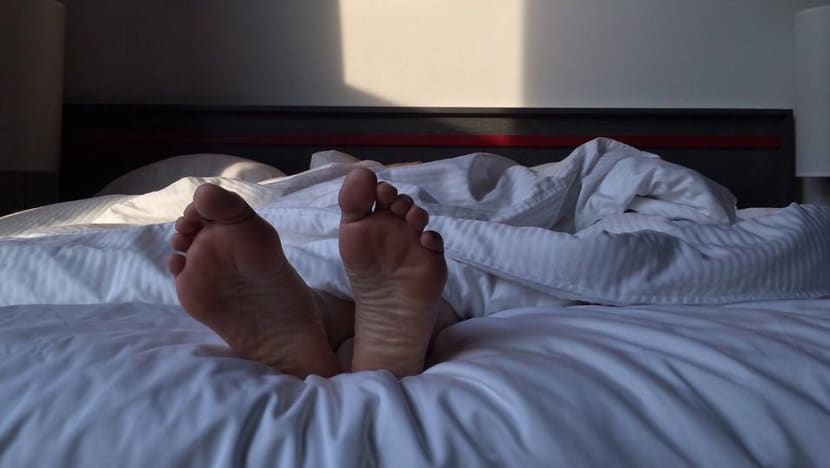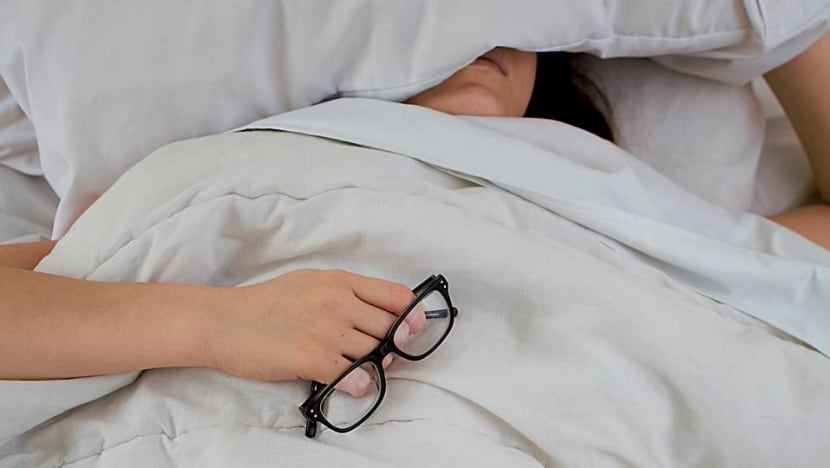Commentary: Why some night owls are flourishing during this work-from-home era
What revenge bedtime procrastination and coronasomnia? Nocturnal types are finally living their best lives with the flexible hours that working from home affords, says Karen Tee.

(Photo: Pixabay/Wokandapix)
SINGAPORE: To paraphrase Linda Evangelista, the model who famously said she does not get out of bed for less than US$10,000 a day, I don’t get out of bed before 10am.
I did pry my eyes open for a 9am Zoom appointment the other day, but after wrapping up, I promptly wiped off my lipstick and changed back into pyjamas to catch more zzzs before starting my day proper at noon.
As a lifelong creature of nocturnal habits, I have finally embraced the fact that some of us function much more effectively and productively as late risers and rising before the sun does like most model CEOs supposedly do is just pointless.
This epiphany struck after one sleepless night during last year’s circuit breaker, when I stopped regarding my sleeplessness as “losing sleep”, treating it as “extra” leisure time instead.
These days, I will read a book or scroll through social media when unable to drift off to dreamland and set the alarm for seven hours later once fatigue sets in.
Instead of trying in vain to conform to norms of waking up before 8am, then feeling groggy and grumpy for the next few hours, I now happily stay up past 1am or 2am and rouse gently from slumber at about 10am every day.
READ: Commentary: Does it really get harder to sleep after a certain age?
READ: Commentary: Immobility during COVID-19 and its effects on our sleep, physical activity and well-being
THE GENES OF NIGHT OWLS
Please don’t hate me. It’s not a late sleeper’s fault they’re wired that way when sleeping patterns are written into our genetic codes.
UK research involving 700,000 in 2019 identified genes that determined how much of an early bird a person is. The researchers from the University of Exeter say night owls keeping to a morning lark’s schedule may be forced to fight their internal body clock.
Night owls can clock eight hours of work too, just not necessarily from nine to five. Instead, by syncing working hours to when energy levels are at their highest, they can be more efficient and productive.

The fortunate flexibility my career offers has been a key enabler allowing me to get more done despite these odd hours. And with WFH as the default for most of the past year, the people I work with do not even notice that I keep to “jetlag hours”.
Starting the day late does mean work occasionally continues into the wee hours of the night. But the silence and solitude allows me to get things done with fewer interruptions and greater focus.
Most of all, I no longer feel guilty about sleeping late nor do I worry about waking by a certain time. This, to me, is happiness.
READ: Commentary: We’re sleeping more since the pandemic, but we aren’t feeling rested
READ: Commentary: It will be a waste if parents don’t keep flexible work arrangements
WHY OWLS ARE OFTEN SLEEP DEPRIVED
Sleep experts point to the COVID-19 pandemic as the cause of multiple sleeping disorders such as revenge bedtime procrastination, where people choose to go to bed later to reclaim some spare time for themselves; and coronasomnia, sleeplessness caused by pandemic-related worries.
There is no doubt insufficient sleep can affect job performance, in diminishing one’s concentration, causing slower reaction times and increasing irritability.
In the long run, poor-quality or insufficient sleep can heighten the risk of health problems like obesity, heart disease and dementia, studies have shown. Late risers are at a greater risk of depression or tend to have a shorter lifespan.
But what these don’t consider is that owls often do not get enough quality sleep because even though their internal body clock makes them sleepy at a later hour, they typically still have to wake early.

“The health problems associated with being a night owl are likely a result of being a night owl living in a morning person's world, which leads to disruption in their body's circadian rhythms," said sleep specialist Kristen Knutson of Northwestern University Feinberg School of Medicine.
To counter this, experts recommend finding ways to embrace the body’s natural rhythm, which in the case of late sleepers could mean working more flexible hours so they can sleep when they feel tired.
BENEFITS OF BEING NOCTURNAL
This might not be possible for some firms and many operational roles, but the pandemic’s rewriting of corporate norms has forced a refocus towards employees’ well-being and engagement, so there is no better time like the present to review those boundaries.
Indeed, this has been the silver lining of pandemic living. After years of frustration over being unable to sleep early, I am finally leaning into my vampiric nature thanks to the flexi work hours afforded by widespread WFH practices.
All of this might seem unconventional to those accustomed to keeping deskbound hours in an office but they are more achievable than you might imagine.
READ: Commentary: Cure to burnout requires a pervasive culture of rest
READ: Commentary: Not enough time? Transforming work and sleeping better in a digital world
I am fortunate because my job does not require me accounting for every waking minute so long as deadlines are met and high standards are adhered to.
But with many of us now working from home, there are certain owl habits that may benefit even the morning larks.
For example, why not wake up a little later since you do not need to commute, instead of sticking to your usual early rising schedule because it’s the “hardworking” thing to do? And how about finding small breaks in the day if you find value in working and thinking in the quiet of the night?
Parents who care for their kids in the morning could also fit in an afternoon nap with their young ones when they return home from school.
READ: Commentary: It will be a waste if parents don’t keep flexible work arrangements
After all, short naps are known to offer benefits such as improved memory and stress relief, so there is no need to feel like you are skiving. Take it from me: Waking up after a snooze can make you feel like your brain has undergone a reset, such that you are ready to tackle whatever deadline lies in wait.
That WFH is likely to extend into the foreseeable future also allows employers to warm up to a hybrid style of juggling work and life.
Society has long tended to think of people who wake up late as lazy, unproductive and spoilt. That sort of old-fashioned thinking needs to find the door in an Internet age when work has become somewhat 24/7 for so many industries.
A more constructive and mature way of approaching this situation is to first assess whether workers have the right priorities and can deliver results, juggle their work and get the rest they need. Then the firm can decide how to offer more flexibility in when and how they work.
When so many traditional notions of work have been disrupted by the pandemic, there is no better time than the present than to allow the owls to rise and lead the way – just not before 10am please.
(Intermittent fasting could help you lose weight but at what cost? And doesn’t it ignore conventional wisdom on not skipping breakfast? Experts unpack the myths on CNA's Heart of the Matter.)
Karen is a freelance lifestyle, travel journalist and a graduate of Columbia University’s School of Journalism in New York City.














